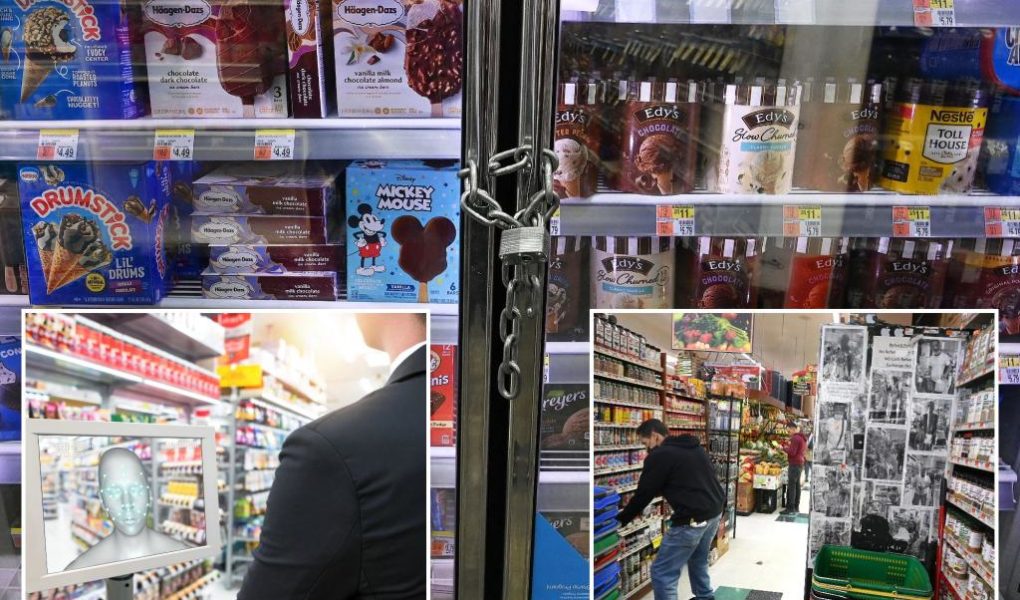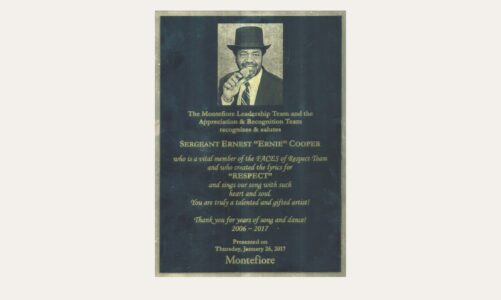Big Apple grocers who have been using facial-recognition technology to battle a citywide shoplifting epidemic are fuming over a City Council proposal that would ban the software — just as shopkeepers say it is beginning to prove effective.
The proposed bill — which follows the city’s feud with Madison Square Garden owner James Dolan, who has used the tech to bar his legal enemies from events at his sports and entertainment venues – would require private businesses and residential buildings to obtain customers’ written consent before their biometric information is captured.
Such a rule would make it practically impossible for supermarkets to use the technology to combat theft — even as Dolan has grabbed headlines for using it at Radio City Music Hall, where he barred one lawyer from attending the Rockettes’ Christmas Spectacular with her daughter’s Girl Scout Troop.
While Dolan’s controversial clampdown helped galvanize legislators this spring, the bill has gained momentum as some argue that the technology should only be allowed for use by law enforcement, claiming that it increases the risk of racial profiling.

“Studies have consistently shown that this technology has high error rates for darker skinned people,” City Council member and co-sponsor Shahana Hanif (D-Brooklyn) said in a statement to The Post. “We’re headed down a dystopian path if we’re conceding that a facial recognition scan is a prerequisite to buying eggs.”
Hanif, who was raised Muslim, said she has “been aware of the surveillance state for years,” having grown up in New York City after the Sept. 11 terrorist attacks.
“The Madison Square Garden incidents pushed this legislation into the spotlight and helped us to get a hearing on the books,” added Hanif’s spokesperson, Michael Whitesides. “I wouldn’t put this all on MSG and James Dolan.”

The bill — which calls for a $5,000 fine per violation, as well as any legal fees involved — is gaining support with some 15 legislators signed on, up from seven at a May 3 committee hearing. It’s not yet clear whether it’s being fast-tracked or not.
“I hope this doesn’t advance because I think it penalizes small businesses,” said Councilman Robert Holden (D-Queens), who attended the hearing as a member of the technology committee.
The security industry maintains that facial recognition technology has improved so much that concerns about racial profiling are outdated.

“The narrative that the technology is performing less well for certain demographic groups is based on old information,” said Jake Parker, director of government relations for the Security Industry Association. “In the early days of facial recognition about 10 years ago, there were lower-performing technologies but today’s software is very accurate, high-performing and uses artificial intelligence.”
Earlier this year, a group of independent grocers formed a political coalition to demand that legislators and law enforcement clamp down on shoplifters, whose heists have multiplied since the pandemic.
In 2022, NYPD officials said that 327 people accounted for 6,660 arrests — or 30% of all shoplifting incidents. Business owners blame Manhattan district Attorney Alvin Bragg for the spike in shoplifting after he said last year that stealing less than $1,000 worth of goods is considered a misdemeanor and not among the crimes his office would be prosecuting.

In response, scores of businesses, including Fairway and Westside Market, have invested in facial-recognition technology. Between 30% and 40% of all independent groceries are using some version of the software, according to Jay Peltz, senior vice president of government relations for the Food Industry Alliance of New York.
The stores are building databases of thieves who have stolen from them at least once, identifying them initially on surveillance cameras. Images are then plugged into the facial-recognition software, which becomes more effective over time.
“We still have a problem with first-time shoplifters, but once we see them we tag those people,” said Miguel Garcia, who co-owns a Foodtown, Key Food and Met Supermarket in the Bronx that have been using the technology since last year.

“When the person has the merchandise already, then it’s like, ‘No, I’m not going to give it up,’” said Garcia, who adds that his staff has been threatened verbally and with knives and bats.
“We are losing a lot of staff because they are literally afraid to work in the store,” Garcia said. “It’s insane that [the city] want to take this [technology] out of my stores when it’s cutting down on such confrontations.”
In addition to text messages alerting the staff to a suspicious person, Garcia’s stores have a light above the entrance of the store that flashes yellow when the software flags someone. Some potential shoplifters simply turn around and leave the store before anyone approaches them, Garcia said.
Success stories like Garcia’s convinced Morton Williams’ owner to shop for facial recognition software to install in his 16 stores in the city. Over the past year, the chain has spent over $1 million to hire off-duty NYPD officials to stand guard at the stores’ exits, co-owner Avi Kaner told City Council members at the May 3 hearing.

“It’s not sustainable to employ NYPD officers, who get paid $50 an hour when theft happens in our stores every day,” Kaner told The Post. “It’s practically wiped out any profit we have.”
Last month, a group of five thieves pillaged the Morton Williams’ store across the street from Columbia University in just two minutes, fanning out into different aisles and stuffing toothpaste, meat and detergent into duffel bags. When an employee tried to stop the shoplifters from running out without paying, one pulled a knife on him.
Critics of facial recognition software say the systems can be 99% accurate for middle-aged white men but get it wrong more than one in three times for some women of color.
“Grocery stores want us to trust them they are not getting it wrong, but I want them to give us the data to back up their claims,” Albert Fox Khan, executive director of the Surveillance Technology Oversight Project told The Post.

Carlos Collado, a co-owner of two Fine Fare grocery stores in the Bronx and Harlem who also manages four other stores, has been using the software for the past five months. He estimates it is saving him $150 a week per store — a number that is steadily increasing as it builds a database of known shoplifters.
Collado said the system he uses rarely flags the wrong person, and that when it happens his staff catches the error before approaching the person.
“The last thing we want to do is to turn away a customer,” Collado said.
𝗖𝗿𝗲𝗱𝗶𝘁𝘀, 𝗖𝗼𝗽𝘆𝗿𝗶𝗴𝗵𝘁 & 𝗖𝗼𝘂𝗿𝘁𝗲𝘀𝘆: nypost.com
𝗙𝗼𝗿 𝗮𝗻𝘆 𝗰𝗼𝗺𝗽𝗹𝗮𝗶𝗻𝘁𝘀 𝗿𝗲𝗴𝗮𝗿𝗱𝗶𝗻𝗴 𝗗𝗠𝗖𝗔,
𝗣𝗹𝗲𝗮𝘀𝗲 𝘀𝗲𝗻𝗱 𝘂𝘀 𝗮𝗻 𝗲𝗺𝗮𝗶𝗹 𝗮𝘁 dmca@enspirers.com




